The hundred and forty-one (141) page of sanitation document signed by Government Statistician of GSS, Professor Samuel Kobina Annim catalogues the gains and challenges of the sanitation sector over the past years--that is from 2010 to 2021.
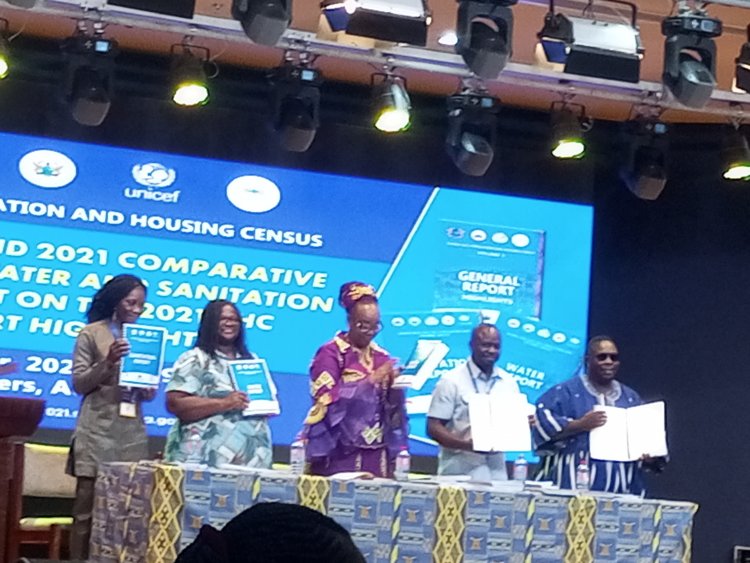
The sanitation report covers the toilet technologies used by households, toilet service levels and defecation points for households without toilet by region, district, and type of locality.
This publication generally targets Government Ministries, Departments, and Agencies
(MDAs), Metropolitan, Municipal and District Assemblies (MMDAs), development
partners, civil society organisations (CSOs), private sector, researchers, and the
general public.
The report particularly seeks to provide basic data to MMDAs to assist them achieve their core function as stipulated in the 1993 Local Government Act (Act 462)—that is, to aid decentralized planning and provision of public services in all districts for the development of local economies.
This is important because the 2021
PHC realigned with the 2010 PHC provides the first set of comparative official statistics
on the recently created regions and districts.
The centra premise of the Sustainable Development Goals, which is to “leave no one
behind” requires disaggregated data to inform settlement arrangements, identify areas of sub-national disparities and make vulnerable groups more visible to decision
makers.
This report thus sets the tone for further analysis of disaggregated indicators
on sanitation.
Aside that development, the sector minster also launched 2010 to 2021 Water Report.
The Water report has detailed of Households’ Main Sources of Drinking Water, Households
with source of drinking water on premises, Average
Time Spent by Households without
drinking water on premises to Access Drinking Water, and Households that Use Improved
Water as Main Sources of Drinking Water by region, district, and type of locality.
This publication generally targets Government Ministries, Departments, and Agencies
(MDAs),Metropolitan, Municipal and District Assemblies (MMDAs), development
partners, civil society organisations (CSOs), private sector, researchers, and the general
public.
The report particularly seeks to provide basic data to MMDAs to assist them achieve their core function as stipulated in the 1993 Local Government Act (Act 462) —that is, to aid decentralized panning and provision of public services in al districts for the development of local economies.
This is important because the 2021 PHC realigned with the 2010 PHC provides the first set of comparative official statistics on the recently created regions and districts.
The central premise of the Sustainable Development Goals, which is to “leave no one
behind,” requires disaggregated data to inform settlement arrangements, identify areas
of subnational disparities and make vulnerable groups more visible to decision makers.
This report thus sets the tone for further analysis of disaggregated indicators on sources of water used by households.
The water report covers a historical overview of Ghana’s water and sanitation sector; institutional developments and sector coordination; performance information on water resources management; urban, rural and small town water supply in 2010; performance information on sector sanitation, hygiene and school WASH in 2010.
The report also provides information on WASH sector financing including contributions from non-state actors to the WASH sector; monitoring, evaluation and sector reporting and makes recommendation for the way forward.
Addressing the gathering, the Minister of Sanitation and Water Resources who doubles as the Member of Parliament (MP) for Tano North Constituency in the Ahafo Region, Honourable Freda Prempeh, expressed gratitude to the GSS, United Nations International Children's Emergency Fund and other development partners who have shown their willingness to support the water and sanitation initiatives.
Honourable Freda Prempeh whose speech was read on her behalf noted that she understands that the report generates from the statistics from The Ghana 2021 Population and Housing Census (PHC) which was conducted to provide
updated demographic, social and economic data for research, policy and planning to
support national development activities.
She stressed that it is the expectation of the Ministry of Sanitation and Water Resources that the further analysis of the water and sanitation datas would enhance targeting in "our priority setting in our collective efforts to attain adequate and reliable clean drinking water supply as well as decent environment for all."
"I have no doubt that this report would provide vital information to support the implementation of policies in order to ensure that all persons in Ghana have access to safe, sufficient and affordable water and sanitation services.
"Mr government statistician, we like to assure you that the Ministry of Sanitation and Water Resources would continue to collaborate with the GSS to provide statistical products that supports evidence based decision making at all levels," Honourable Prempeh assured.
She reaffirmed that her outfit is seriously working in collaboration with some key stakesholders in the water sector to ensure that all Ghanaians have access to safe drinking water and ensure subtainable environmental sanitation in order to prevent water related borne diseases in the country.
He stressed that these foregoing moves are
in line with the national vision for water
and sanitation sector which is to ensure “sustainable basic water and sanitation service for all by 2025.”
This in detailed terms means “all people living in Ghana have access to adequate, safe, affordable and reliable basic water service, practice safe sanitation and hygiene.
Honourable Prempeh indicated his outfit commitment to improve the water sources for drink for human beings in the country.
For her part, the Deputy Government Statistician at GSS, Dr Faustina Frempong-Ainguah expressed disappointment about the increasing practice of open defection in Ghana and stressed the need for all Ghanaians to join forces of the government institutions to end open defecation in the 2030.
Making power point presentation entitled "Water and Sanitation , 2010and 2021 PHC Comparative," Dr Frempong-Ainguah appealed to all households to own their own toilets, adding that open defecation anywhere is open defecation everywhere.
It is estimated that Ghana loses 79 million dollars annually on open defecation.
Individuals, Institutions and Metropolitan, Municipal and District Assemblies who have distinguished themselves in the fight against open defecation were given awards for their outstanding leadership.
However, she was not happy about the increasing trend, disclosing pen defecation is looming in the Ada West District in the Greater Accra Region where some residents in many of the communities have resorted to indiscriminate defecation because the public toilets are not usable.
Whereas some of them engage in 'free range' (defaecating in open spaces), especially around the public toilets, others parcel their faeces in black plastic bags at home and deposit them anywhere in their communities.
She called on the District Chief Executives and Assembly members in the areas to enducate the residents to stop indiscriminate practice of open defecation and dumping of refuses.
This sanitation report,which is a collaboration between Ghana Statistical Service (GSS)
and UNICEF,aims to provide a comprehensive analysis of the current state of sanitation in Ghana based on data from the 2010 and 2021 PHC.
By examining the progress made, identifying gaps, and analysing the policies and strategies in pace, we can develop targeted interventions to accelerate progress towards achieving
universal access to safe and sustainable sanitation in Ghana.
Various interventions related directly to water and sanitation have been implemented
in targeted districts between the 2010 and 2021 intercession period.
The 2021 PHC provides basic data for evidence-based policy formuation, planning and monitoring of development goals.
A comparative analysis of the 2010 and 2021 Censuses data at the national, regional and district leaves will provide a credible country statistic to assess progress, inform sector policy and strategy, and provide the basis for the final validation session for the Sanitation Financing Assessment.
The comparative analysis will provide the linkages of country data, particularly, that of the 2021 Census, and with the JMP, create the needed sector data awareness and usage.
The focus is to enhance the understanding and linkages between data generated by the GSS (as country data)and those published by the JMP to ensure and promote sector harmony in tracking progress towards the achievements in sanitation outcomes.
In view of this, UNICEF is partnering with GSS to come up with statistics which conform to the JMP standards based on the two censuses to monitor the intervention programmes at al levels.

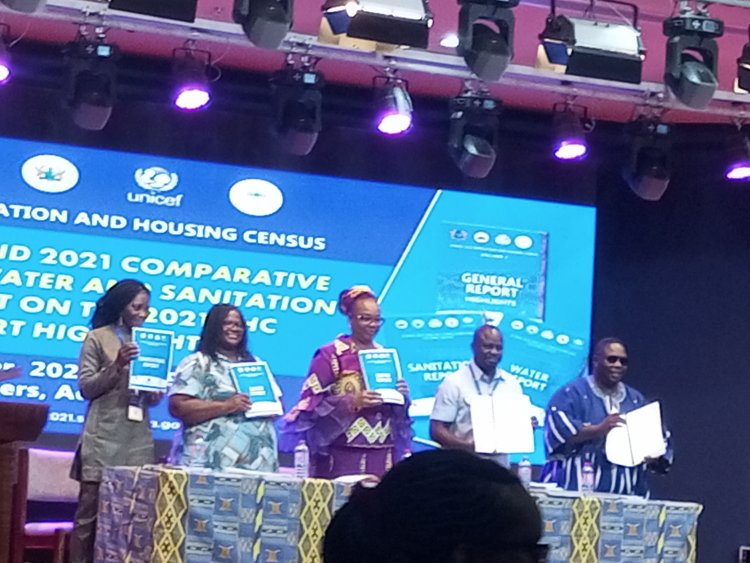


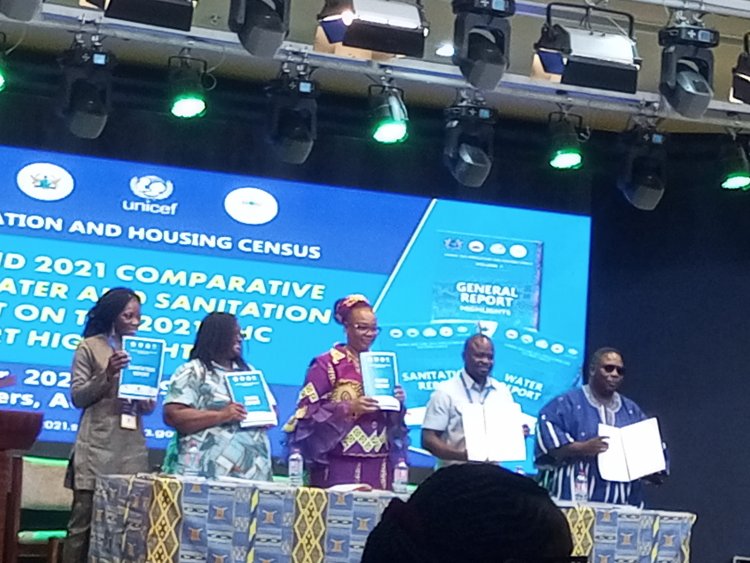
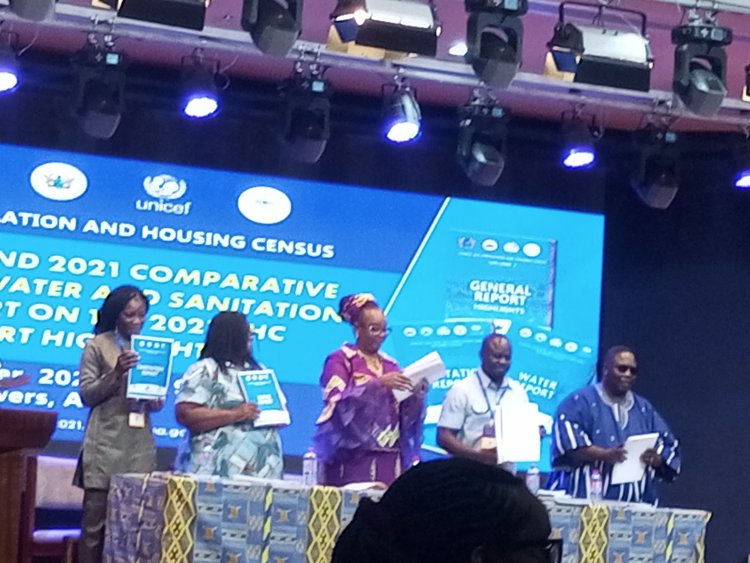


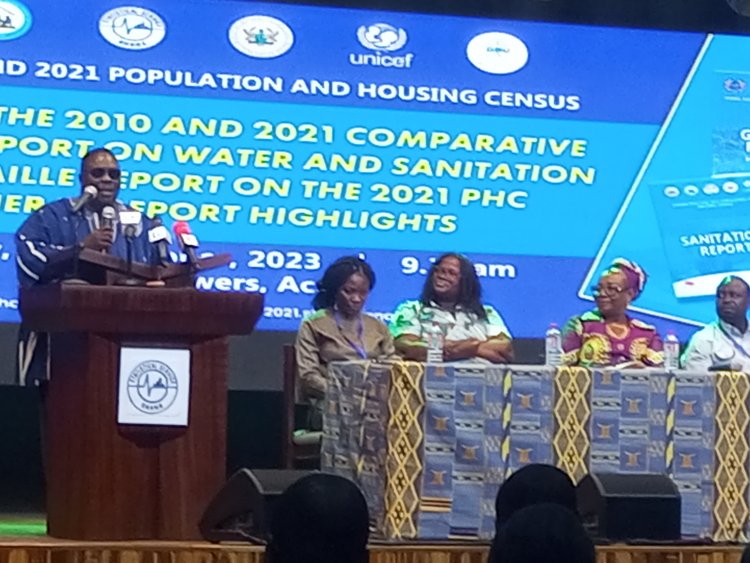
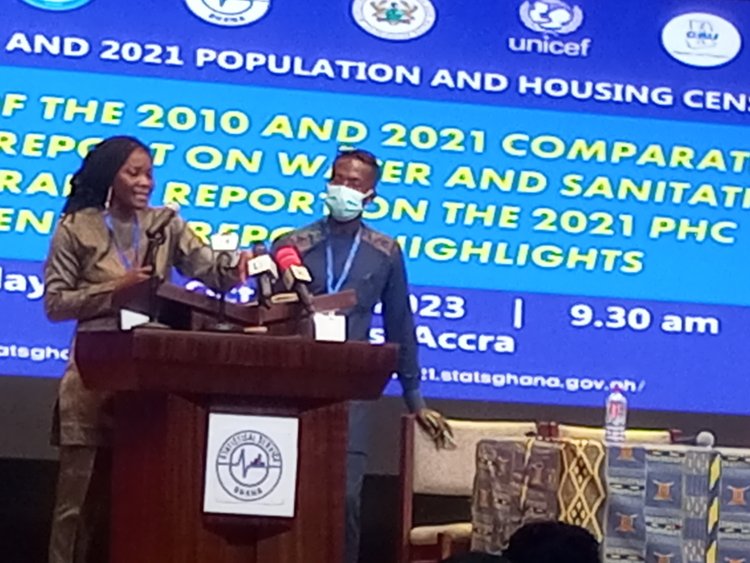
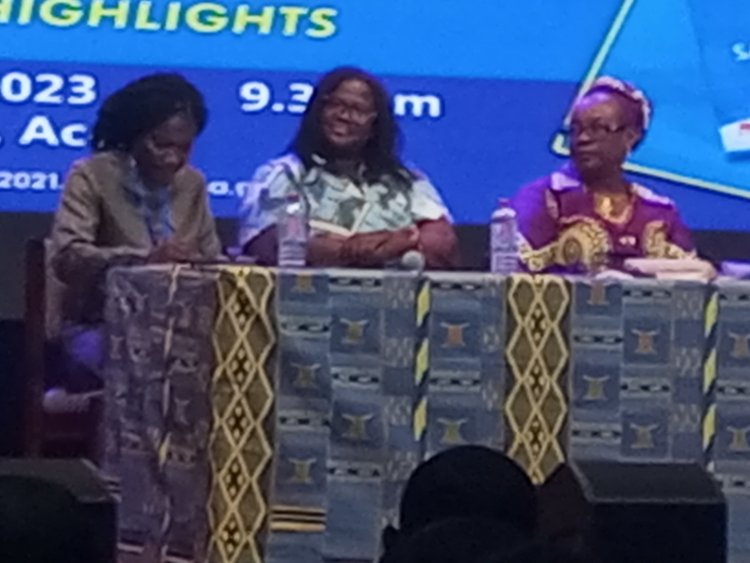





 Freeman Koryekpor
Freeman Koryekpor 



































